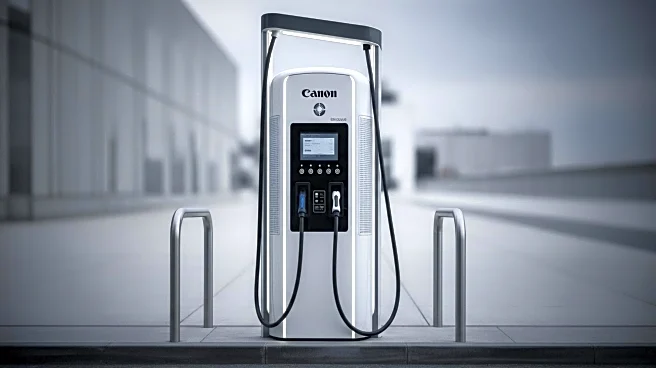What's Happening?
European car manufacturers are adjusting their strategies in response to the EU's decision to extend the deadline for 2025 emission targets by two years. This extension is expected to result in 2 million fewer electric vehicles being sold between 2025 and 2027. Despite this, most carmakers, except Mercedes-Benz, are on track to meet the revised targets. BMW, Renault, and Volkswagen are expected to comply with the emission standards, while Mercedes-Benz may need to purchase credits from competitors like Volvo Cars and Polestar. The EU Commission is under pressure to relax future targets, but positive market dynamics, such as falling battery costs and expanded charging infrastructure, continue to support electric vehicle sales.
Why It's Important?
The extension of emission targets by the EU has significant implications for the automotive industry, particularly in the electric vehicle sector. While the delay may provide temporary relief for carmakers, it could hinder the EU's competitiveness in the global electric vehicle market, especially against rapidly advancing markets like China. The decision may also impact consumer prices, as carmakers have increased the price premium of electric models over combustion cars. Maintaining stringent emission targets is crucial for the EU to lead in the global transition to electric vehicles and avoid falling behind in technological innovation.
What's Next?
The EU Commission is expected to host a strategic dialogue on the future of the automotive industry, where discussions on maintaining or adjusting emission targets will take place. Carmakers are likely to continue lobbying for relaxed targets, while environmental groups and industry leaders advocate for stricter regulations to ensure the EU remains competitive. The outcome of these discussions could shape the trajectory of the EU's automotive industry and its role in the global electric vehicle market.
Beyond the Headlines
The extension of emission targets raises ethical and environmental concerns, as it may slow down the transition to cleaner transportation solutions. The decision could also affect the EU's ability to meet its climate goals and commitments under international agreements. Long-term, the EU's approach to emission targets will influence its position in the global automotive industry and its ability to drive innovation in sustainable technologies.












